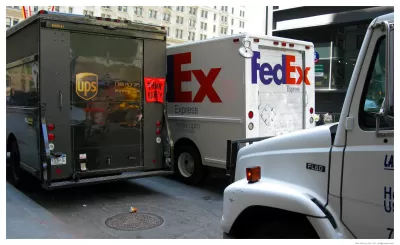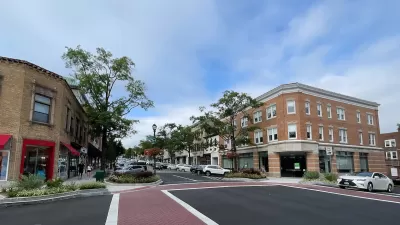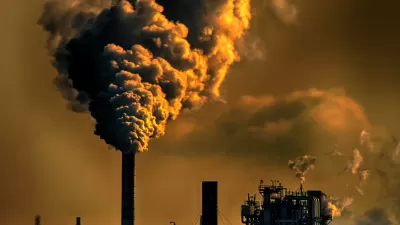With urban pollution and traffic violence disproportionately affecting communities of color, better management of public space and streets could improve equity in cities.

Sahar Shirazi assesses the changes to streets and public space brought on by the pandemic, noting that "fallout often hits hardest on those historically marginalized and those most vulnerable." As we make dramatic changes in how we use public space, Shirazi argues that "[i]t is essential, now more than ever, that any urban equation factor in the reality that our urban environments have historically been unequal places."
The choices made by policymakers now "can either exacerbate those inequities, or mitigate them." Shirazi points to the intensifying battle over curb space as one area where "cities can use their existing authority over curbs to shift driver behavior, more effectively allocate curb space to match the needs of the community, and improve safety, environmental sustainability, and revenue generation," partnering policy with technology to "intelligently and democratically mitigate the negative impacts of these changes and improve life for all city-dwellers, especially those already facing financial hardship or discrimination."
Shirazi recommends that cities charge companies like Amazon and UPS for parking and curbside access. "Additionally, more efficient parking enforcement can improve traffic flow and reduce transit time, which will also be a boon to lower-income communities which rely more heavily on public transit and frequently have higher greenhouse gas emissions in their neighborhoods and worse air quality than other city dwellers."
Shirazi also emphasizes the importance of achieving two important goals: zero traffic fatalities and zero carbon emissions, both of which disproportionately harm communities of color. "By addressing road safety, parking, emissions, and how we allocate and charge for curb usage, cities can make strides to address inequities present today."
FULL STORY: Op-Ed: Managing Our Streets Better Can Reduce Inequities In Our Cities

Alabama: Trump Terminates Settlements for Black Communities Harmed By Raw Sewage
Trump deemed the landmark civil rights agreement “illegal DEI and environmental justice policy.”

Planetizen Federal Action Tracker
A weekly monitor of how Trump’s orders and actions are impacting planners and planning in America.

The 120 Year Old Tiny Home Villages That Sheltered San Francisco’s Earthquake Refugees
More than a century ago, San Francisco mobilized to house thousands of residents displaced by the 1906 earthquake. Could their strategy offer a model for the present?

LA’s Tree Emergency Goes Beyond Vandalism
After a vandal destroyed dozens of downtown LA trees, Mayor Karen Bass vowed to replace them. Days later, she slashed the city’s tree budget.

Sacramento Leads Nation With Bus-Mounted Bike Lane Enforcement Cameras
The city is the first to use its bus-mounted traffic enforcement system to cite drivers who park or drive in bike lanes.

Seattle Voters Approve Social Housing Referendum
Voters approved a corporate tax to fund the city’s housing authority despite an opposition campaign funded by Amazon and Microsoft.
Urban Design for Planners 1: Software Tools
This six-course series explores essential urban design concepts using open source software and equips planners with the tools they need to participate fully in the urban design process.
Planning for Universal Design
Learn the tools for implementing Universal Design in planning regulations.
Ada County Highway District
Clanton & Associates, Inc.
Jessamine County Fiscal Court
Institute for Housing and Urban Development Studies (IHS)
City of Grandview
Harvard GSD Executive Education
Toledo-Lucas County Plan Commissions
Salt Lake City
NYU Wagner Graduate School of Public Service





























